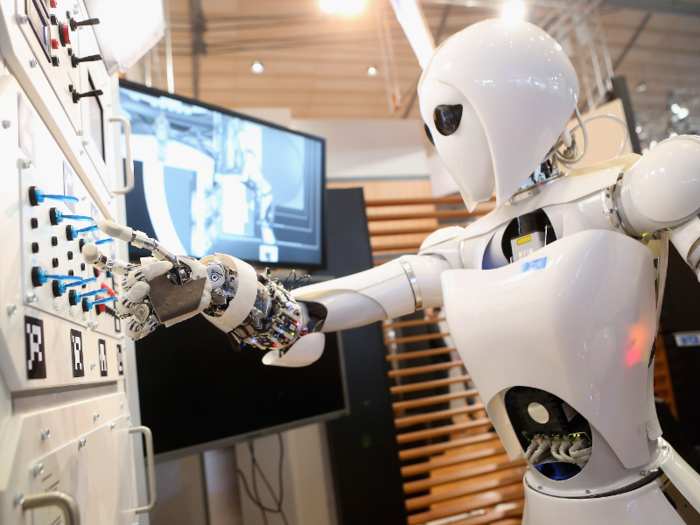
At the end of the 2017 school year, Gates wrote in a Twitter thread that incoming college freshmen would do well to study one of those three majors, given how relevant they'll be in the coming decades.
He called them all "promising fields where you can make a huge impact."

In the same Twitter thread, Gates advised students to be intentional about who they spend time with in the pursuit of growing and getting better.
It echoed what his best friend Warren Buffett has said, —namely that "You'll move in the direction of the people you associate with," so choose wisely.
For Gates, that person is his wife of 23 years, Melinda.

Contrary to how it sometimes seems, Gates likes to remind people that the world is the best it's ever been. He frequently recommends the book "Better Angels of Our Nature," by cognitive scientist Steven Pinker, as proof.
"If you think the world is getting better, you want to spread the progress to more people and places," he said. "It doesn’t mean you ignore the serious problems we face. It just means you believe they can be solved."

The wisdom in that message is another profound one: Optimism can lead to action.
Together with Melinda, Gates remarked in their 2014 Stanford commencement address that "even in dire situations, optimism can fuel innovation and lead to new tools to eliminate suffering."
The catch, he said, is that "if you never really see the people who are suffering, your optimism can't help them."

Gates considers himself a lifelong learner. He'll typically read about 50 books a year.
Often, those books will inform his view of the world. But occasionally something will shatter that view, and he'll need to rethink his perspective. It's something he told Columbia University students to try out for themselves.
"You try and predict what's going to happen," he said, "then when it doesn't, you think: What is it about my model of the world that's wrong?"

Gates has told students on numerous occasions that one of his big regrets upon leaving Harvard was his lack of awareness of the world's imbalances in health, wealth, and resources.
In his 2007 Harvard commencement speech, Gates told graduates to consider the responsibility of being so aware of those realities and perhaps even correct them.
"I hope you've had a chance to think about how, in this age of accelerating technology, we can finally take on these inequities, and we can solve them," he said.
 US buys 81 Soviet-era combat aircraft from Russia's ally costing on average less than $20,000 each, report says
US buys 81 Soviet-era combat aircraft from Russia's ally costing on average less than $20,000 each, report says 2 states where home prices are falling because there are too many houses and not enough buyers
2 states where home prices are falling because there are too many houses and not enough buyers A couple accidentally shipped their cat in an Amazon return package. It arrived safely 6 days later, hundreds of miles away.
A couple accidentally shipped their cat in an Amazon return package. It arrived safely 6 days later, hundreds of miles away. Foreign tourist arrivals in India will cross pre-pandemic level in 2024
Foreign tourist arrivals in India will cross pre-pandemic level in 2024
 Upcoming smartphones launching in India in May 2024
Upcoming smartphones launching in India in May 2024
 Markets rebound in early trade amid global rally, buying in ICICI Bank and Reliance
Markets rebound in early trade amid global rally, buying in ICICI Bank and Reliance

Copyright © 2024. Times Internet Limited. All rights reserved.For reprint rights. Times Syndication Service.